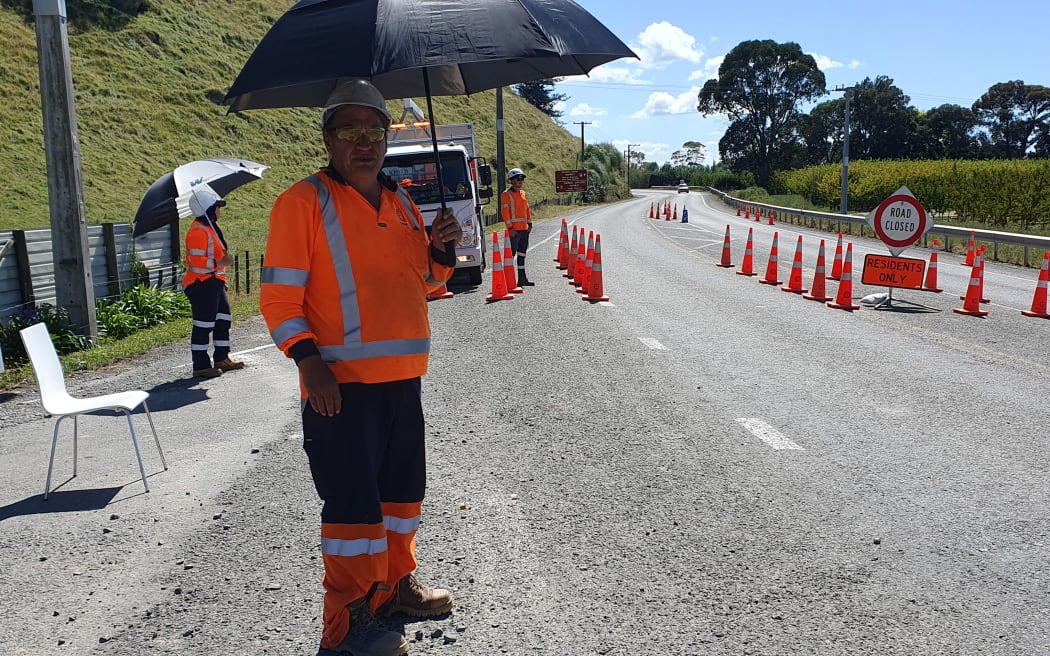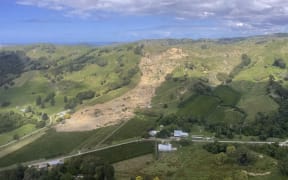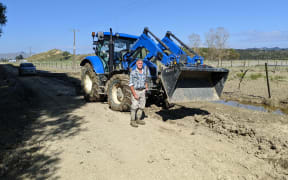
Joe Puna on traffic control, wondering about shearing. Photo: RNZ / Phil Pennington
A shearing contractor says he is having to reassess his whole business after Cyclone Gabrielle swept through.
Many farms in Hawke's Bay and Tairāwhiti still remain inaccessible by road after last week's storm.
Joe Puna has work for up to 25 people normally, but said that for all but one of the farms they work on around the Patoka and State Highway 5 areas, access was uncertain.
"Me and my partner and my older children, we're going to have a meeting ... to see what we can do through the business, well, to see if we actually got a business left, to be honest.
"If we can't do our job and get to our farmers, I'd say our business is shot," Puna said.
They had already been behind because of the poor weather in December and January.
If it took six months to replace the ruined rural bridges, they could still do their pre-lambing season, he said.
He added it was a problem not just of jobs but animal welfare.
"When Covid happened, we were essential workers because it was all about animal welfare.
"If that does happen, then great. We can go and shear all the sheep and make sure that wool's off and all that jazz."
Meantime, Puna is working on traffic control crews.
For his partner's whānau in hard-hit Omahu northwest of Hastings it had been like being "wiped out", he said.
"So we're expecting in the next few weeks for our house to turn into a mini marae.
"I'm expecting our house to be chokka for the next, I dunno, 12 months, maybe two years, it doesn't matter. It's about helping out everyone."
New National Emergency Management Agency advice
- Heavy rain could cause further flooding, landslides, and damage to roads in regions impacted by Cyclone Gabrielle.
- Put safety first. Act quickly if you see rising water do not wait for official warnings. Head for higher ground and stay away from floodwater.
- Have grab bags ready with: medications, snacks, water, torches, pet food, and baby formula (if needed) in case you need to evacuate.
- Plan where you will go if you have to evacuate.
- Ensure that you have enough food, water, and other essential supplies to last for several days.
- Stay up to date with the latest information from MetService and your local Civil Defence Emergency Management Group.
- Wear protective clothing when cleaning flood water and mud including: mask, goggles, gloves, long pants, long-sleeved shirt, and gumboots or work shoes.






